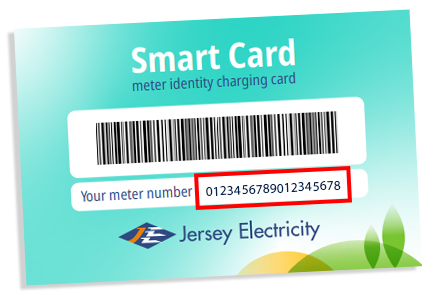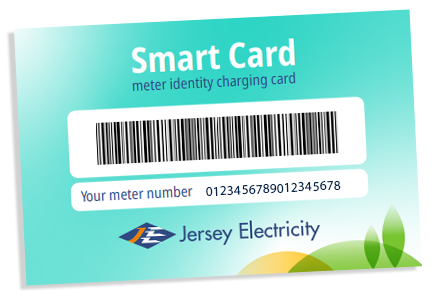The new EVs hitting the showrooms in 2019
2019 will see major launches from well-known electric pioneers like Tesla, Nissan and Renault, as well as new entrants to the category from the likes of Audi, Mini, DS, Skoda and more, according to the experts at autocar. Find out what’s coming and when.
January
For 2019, BMW has scrapped the combustion engine altogether, removing the range extender model from sale in favour of a larger capacity battery. The new 120Ah lithium-ion battery will apparently deliver 193 miles between charges, a 30% improvement over the old version. The more potent i3S should manage 177 miles between top-ups.
March

Revealed in late 2018 and already tested on roads in the UAE, Audi’s first electric SUV will arrive in the UK in early 2019 to take on the Jaguar I-Pace and Tesla Model X. It is a premium model, with options like virtual wing mirrors that use cameras and small digital displays instead of glass, and promises 402bhp from its two electric motors. In Boost mode, it will achieve 0-62mph in 5.7 seconds, and on to an electronically limited top speed of 124mph. Range is estimated at 249 miles on the WLTP cycle.
With partner brand Hyundai’s Kona Electric transforming the landscape of the EV market with its 279-mile range and sub-£30,000 price, a near unbeatable combination at the time of writing, the e-Niro has every chance of being just as important.
In the past, you either spent more, or accepted significantly less range with a selection of more affordable city cars and hatchbacks. The Kia looks set to reverse that trend. With a 100kW fast charger it will reclaim 80% charge in as little as 54 minutes, and promises a 0-62mph sprint in 7.8 seconds.
Due for a reveal in March, but not expected to go on sale in the UK for at least 12 months after, the sister car to the Model 3 will arrive as a much-in-demand compact SUV. Little has been revealed ahead of an official announcement, but it is expected to share its platform and powertrain with the Model 3 saloon.
June
The Model 3 stands to be a massively popular mass-produced compact saloon. A WLTP-certified 338 miles for the Dual Motor Long Range version gives it the longest range of any electric car, and based on an early drive in San Francisco last year, refinement is second to none in its class.
July
The first car in Mercedes’ critical EQ electric range, the EQC will compete with the Tesla Model X and Jaguar I-Pace at the premium end of the market. It’s based on a heavily modified version of the existing GLC platform, with twin electric motors - one powering the front wheels and another the rears.
Combined power output is 402bhp, with 564lb ft of torque on tap to propel the 2425kg EQC to a limited 112mph top speed. In Sport mode, it will achieve the 0-62mph sprint in 5.1 seconds. Range is estimated at 249 miles on the WLTP cycle, which should translate to around 200 miles of real-world range.
UK sales have yet to be confirmed for MG’s first electric car, a version of the ZS compact SUV. Technical specifications have been equally hard to come by, following the car’s reveal at the Guangzhou Motor Show in China back in November 2018, but it is understood to use a single electric motor that will send 148bhp to the front wheels. The battery should be good for 268 miles of range under the old NEDC cycle, meaning a real-world distance of around 200 miles.
August
In second-generation guise, the Zoe will be the first to use an all-new bespoke EV platform that allows for greater battery capacity. It should allow Renault’s compact electric supermini to achieve up to 250 miles of range per charge, a match for the existing R110’s NECD claimed range.
Heavily-camouflaged prototypes have been spotted testing, revealing a front end inspired by the upcoming 2019 Clio, a curvier rear-end, and a higher quality interior. Multiple power outputs and ranges are expected, but prices and performance figures have yet to be confirmed.
September
The first Audi saloon to go all-electric, the E-tron Sportback was first shown in concept form way back in 2017 at the Shanghai Motor Show. The production version will share a platform with the E-tron SUV, which will have been on sale for six months by the time this model reaches UK showrooms.
It will deliver a sportier drive, according to Audi, along with a coupe-like body style. The powertrain will likely be identical, meaning twin electric motors delivering 355bhp and a battery capable of 250 miles between charges. Using Boost mode, 0-60mph times should be in the mid 5-seconds.

The sporting four-door EV will play a big part in the company’s future. It has seen Porsche invest £5.3 billion in electrification projects, and will likely influence future models including the iconic 911.
Previewed as the Mission E, the production version will debut at the Frankfurt Motor Show, with pricing to put it between the Cayenne SUV and Panamera saloon.
Although little is known about Hyundai’s plans for its refreshed Ionic, it’s expected that the company will use advances in its electric powertrains to overhaul the EV version towards the end of 2019. The maximum range should therefore be a close match to the Kona Electric SUV, with performance figures to match. It will be joined by hybrid and PHEV options.
October
The first electric Aston will be more of a taster of things to come from Gaydon. The limited-run luxury saloon will be based on the existing Rapide, but swap its petrol drivetrain for twin electric motors that send 602bhp and somewhere in the region of 738lb ft of torque to the rear wheels. Weight should be almost on par with the petrol model.
Aston is reportedly looking for a 0-60mph time of four seconds, to put the electric version on par with the Rapide S. Aston’s focus has been on ‘repeatable performance’, meaning foot-to-floor acceleration runs that can be done without resulting in a rapidly sapped battery, and a quoted 155mph top speed that can be maintained for ten minutes. No word on pricing as yet.

An updated design and upgraded interior aren’t the only changes for the second-generation Soul EV - it also borrows a powertrain from the e-Niro crossover. With Europe not getting any kind of combustion engined-model, the sole Soul will be electric, with a 201bhp power output from a 64kWh liquid-cooled lithium-ion battery pack.
Range has yet to be confirmed, but it should at least match the 279 miles quoted for the e-Niro. A 10.25in touchscreen with Apple CarPlay and Android Auto should improve things inside the cabin, too.
A potential watershed moment for EVs, the upcoming Mini could become the very first electric hot hatchback. It is set to arrive with a powertrain influenced by the one found in the BMW i3, and will be built on an adapted version of the platform currently being used by the Mini hatchback.
Near-instant torque and a 0-62mph time of less than even seconds mean it should earn its Cooper branding. Range details have yet to be released, but handling is promised to be a lot closer to the original 60’s-era Mini - which sounds like a recipe for success to us.
Volvo’s electric sub-brand will introduce its first pure EV in 2019, with a winter reveal predicted but nothing as yet confirmed. The Polestar 2 will be a mid-sized saloon priced between £30,000 and £50,000, offer a range as high as 350 miles, and as much as 400bhp on tap.
It will almost certainly take design cues from the 40.2 concept shown in early 2017, as well as the 40.1 concept that went on to inspire the Volvo XC40 compact SUV. It is unknown if Polestar will use a similar sales model to its flagship 1 performance hybrid, which will be sold by subscription.
November
Set to share its CMP platform with the upcoming Vauxhall Corsa and Peugeot 208, the 3 Crossback will be the first electric DS model and beat its PS group brethren to market by several months.
Designed as a direct rival for the Volvo XC40 and Audi Q2, the Crossback will focus on comfortable, high-end interiors, distinctive exterior styling inspired by the 7 Crossback, and an electric range of around 180 miles from a 50kWh lithium-ion battery. 0-62mph performance is estimated at 8.7 seconds, with a top speed of 93mph.

Designed and built as a pure electric car, the ID hatchback will be a crucial launch for VW. It will closely match the Golf hatchback in size, and the company is anticipating a price close to that of a Golf diesel, making it a more affordable EV than existing models.
It offer a variety of battery options for a range of between 249 and 373 miles between charges. According to VW, the final design will remain true to the original concept, which was first revealed in 2016 and went on to inspire several other ID models, which are all due to launch over the next five years.
The company’s very first electric vehicle, the XC40 EV will arrive after the Polestar 2 and establish a pattern for the company: electric versions of existing models, rather than brand new ones built around batteries and electric motors. That means an electric XC90 will follow. Hardware will be shared with Polestar, but performance figures and electric range has not yet been confirmed.
December
A concept version of Audi’s upcoming compact electric SUV is set to be revealed in 2019, with a production model to follow in 2021. It will be based on the VW Group’s MEB platform, and will sit between the Q2 and Q3 in terms of dimensions.
It will be an important model for the brand, and likely become one of its biggest sellers. Design cues will be borrowed from the recently-revealed E-tron GT concept, while the use of MEB should ensure the model is more affordable than its larger electric siblings.
It might arrive as a five-door, rather than the three-door layout previewed by the well-received concept shown at 2017’s Frankfurt Motor Show, but the production version of Honda’s compact electric city car promises to retain its retro-inspired looks. The company even went back to the drawing board after the reveal to make sure the real thing stayed as true to the concept as possible.
The Urban EV will arrive on a unique new platform and a predicted range of 155 miles, and is set to become the brand’s first European electric car. It should be smaller than the Jazz, but no performance figures have been officially announced as of January 2019.
Nissan is responsible for two of the most popular cars within their categories on UK roads today. The Qashqai didn’t invent the crossover hatch, but it did popularise it, and the Leaf has quickly become the go-to electric car for the masses thanks to a sensible range and hatchback proportions.
The upcoming Leaf SUV is on track to mash these two ideas together, and is almost certain to become a sales hit when it goes on sale. Nissan has pledged to stay true to its IMx concept, which should mean distinctive looks, longer range and more power when it eventually goes on sale.
After being on sale for six years, only the 208 GTi has managed to truly impressed us, so rumours that its replacement will appear in pure-electric form should be guaranteed to get hot hatchback fans excited. The standard 208 will also get an electric version, courtesy of the CMP platform which allows for multiple powertrains.
It won’t get a bespoke design, so will instead share its looks with the petrol and diesel versions when it arrives towards the end of the year. Performance details are still under wraps, but a range of at least 186 miles has been promised.












